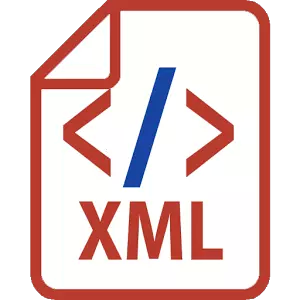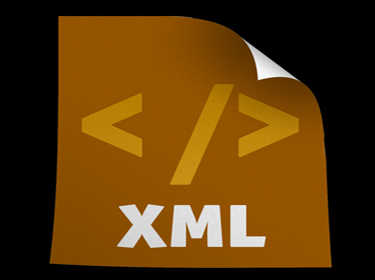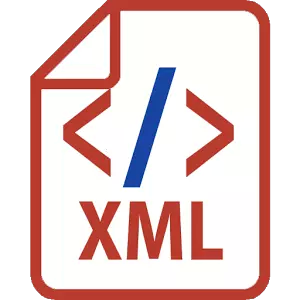Detailed introduction to Spy
XML Spy version 4.4 contains some new features, and it also supports parts of the latest W3C specifications. by Dan Wahlin XML Spy is a popular XML editor for many developers, and the latest version released by Altova certainly doesn't disappoint. If you haven't used XML Spy before, you may not understand many of its features, including how to work with XML documents, XSLT, XSL, schemas, DTDs, and others. In the XML Spy4.4 version, some features not found in the 3.5 version have been added, and it also supports part of the W3C specification. XML Schemas The XML Schema standard released by W3C in May 2001 marks the advent of a more powerful method for validating and describing XML documents. XML Spy enables developers to more flexibly use schema specifications and design schema in visual interfaces and code interfaces. This visual editor allows you to define a complex schema relationship,
1. XML-Spy enables a detailed introduction to the XML editing process

Introduction: XML Spy is a popular XML editor for many developers, and the latest version released by Altova It will definitely not disappoint people. If you haven't used XML Spy before, you may not understand many of its features, including how to work with XML documents, XSLT, XSL, schemas, DTDs, and others. In the XML Spy4.4 version, some features not found in the 3.5 version have been added, and it also supports part of the W3C specification.
2. XML Spy example code detailed explanation (picture)

Introduction: XML Spy Example Tutorial Before reading this tutorial, you should at least make sure that you are familiar with XML, have edited XML, DTD and XSLT documents using Notepad or other tools, and are familiar with their syntax and uses. Otherwise, please make up the lessons first before reading this tutorial. XML Spy is an editor developed by Icon Information System that supports XML, XSL, XSLT, DTD, Schema and other file formats. It can display XML as a perfect tree structure,
3. Details the case of testing several xml problems

Introduction: When using sql server, it is inevitable to deal with xml parameters. xml brings convenience to our programs most of the time, but there are also some Sometimes the variable assignment fails. (Of course, if your own xml cannot pass the inspection of software such as xml spy, then this is not the scope of this aspect~)
4. Determine the WebSERVER type_ PHP tutorial
#Introduction: Determine the WebSERVER type. Determine the WebSERVER type? PHP function WebServerSpy($ServerURL) { $filepointer = fsockopen($ServerURL,80,$errno,$errstr); if(!$filepointer) { $WebServer=Error: $errstr ($errno)br; } e
5. Tailspin Spyworks Guide Lecture 8: Other pages, exception handling, summary_html/css_WEB-ITnose
Introduction: Tailspin Spyworks Guide Lecture 8: Other pages, exception handling, summary
6. bootstrap source code analysis of scrollspy (scrolling listening)_html/css_WEB-ITnose
Introduction: bootstrap source code analysis of scrollspy (scrolling listening)
7. Who has the 2014 version of xmlspy Registration code or cracking tool? _html/css_WEB-ITnose
Introduction: Does anyone have the registration code or cracking tool for xmlspy 2014 version?
8. Discussion on the Micro PHP Trojan in the Hacker Tutorial Series
Introduction: Micro PHP Trojan in the Hacker Tutorial Series Discussion
9. phpspy2010 bypasses login vulnerability analysis
Introduction: phpspy2010 bypasses login vulnerability analysis ??? phpspy2010 can be said to be very good in the webshell world A tool, but authentication bypass vulnerabilities have been discovered in phpspy2010 and 2011. I briefly analyzed the bypass vulnerability in php2010. First of all, it is said that only the encrypted version of php2010 has this vulnerability. I roughly read the official explanation, and it is estimated that only This problem only exists with the encrypted version, and it seems to be a mistake. . . ??????? Next
10. Determine the WebSERVER type
Introduction: Determine the WebSERVER type. Determine the WebSERVER type? PHP function WebServerSpy($ServerURL) { $filepointer = fsockopen($ServerURL,80,$errno,$errstr); if(!$filepointer) { $WebServer=Error: $errstr ($errno)br; } e
[Related Q&A recommendations]:
Python3 smtp email failed to send
python - everyone Have you ever used django-crispy-form?
javascript - What is Spy-js? The webstorm tool supports Spy-js 2.0, but what is Spy-js?
python - How to copy the array or matrix in the Variable explorer in Spyder to other files?
The above is the detailed content of Detailed introduction to Spy. For more information, please follow other related articles on the PHP Chinese website!

Hot AI Tools

Undresser.AI Undress
AI-powered app for creating realistic nude photos

AI Clothes Remover
Online AI tool for removing clothes from photos.

Undress AI Tool
Undress images for free

Clothoff.io
AI clothes remover

Video Face Swap
Swap faces in any video effortlessly with our completely free AI face swap tool!

Hot Article

Hot Tools

Notepad++7.3.1
Easy-to-use and free code editor

SublimeText3 Chinese version
Chinese version, very easy to use

Zend Studio 13.0.1
Powerful PHP integrated development environment

Dreamweaver CS6
Visual web development tools

SublimeText3 Mac version
God-level code editing software (SublimeText3)

Hot Topics
 Is the conversion speed fast when converting XML to PDF on mobile phone?
Apr 02, 2025 pm 10:09 PM
Is the conversion speed fast when converting XML to PDF on mobile phone?
Apr 02, 2025 pm 10:09 PM
The speed of mobile XML to PDF depends on the following factors: the complexity of XML structure. Mobile hardware configuration conversion method (library, algorithm) code quality optimization methods (select efficient libraries, optimize algorithms, cache data, and utilize multi-threading). Overall, there is no absolute answer and it needs to be optimized according to the specific situation.
 How to convert XML files to PDF on your phone?
Apr 02, 2025 pm 10:12 PM
How to convert XML files to PDF on your phone?
Apr 02, 2025 pm 10:12 PM
It is impossible to complete XML to PDF conversion directly on your phone with a single application. It is necessary to use cloud services, which can be achieved through two steps: 1. Convert XML to PDF in the cloud, 2. Access or download the converted PDF file on the mobile phone.
 How to convert XML to PDF on your phone?
Apr 02, 2025 pm 10:18 PM
How to convert XML to PDF on your phone?
Apr 02, 2025 pm 10:18 PM
It is not easy to convert XML to PDF directly on your phone, but it can be achieved with the help of cloud services. It is recommended to use a lightweight mobile app to upload XML files and receive generated PDFs, and convert them with cloud APIs. Cloud APIs use serverless computing services, and choosing the right platform is crucial. Complexity, error handling, security, and optimization strategies need to be considered when handling XML parsing and PDF generation. The entire process requires the front-end app and the back-end API to work together, and it requires some understanding of a variety of technologies.
 Recommended XML formatting tool
Apr 02, 2025 pm 09:03 PM
Recommended XML formatting tool
Apr 02, 2025 pm 09:03 PM
XML formatting tools can type code according to rules to improve readability and understanding. When selecting a tool, pay attention to customization capabilities, handling of special circumstances, performance and ease of use. Commonly used tool types include online tools, IDE plug-ins, and command-line tools.
 Is there any mobile app that can convert XML into PDF?
Apr 02, 2025 pm 08:54 PM
Is there any mobile app that can convert XML into PDF?
Apr 02, 2025 pm 08:54 PM
An application that converts XML directly to PDF cannot be found because they are two fundamentally different formats. XML is used to store data, while PDF is used to display documents. To complete the transformation, you can use programming languages and libraries such as Python and ReportLab to parse XML data and generate PDF documents.
 How to open web.xml
Apr 03, 2025 am 06:51 AM
How to open web.xml
Apr 03, 2025 am 06:51 AM
To open a web.xml file, you can use the following methods: Use a text editor (such as Notepad or TextEdit) to edit commands using an integrated development environment (such as Eclipse or NetBeans) (Windows: notepad web.xml; Mac/Linux: open -a TextEdit web.xml)
 How to convert xml into word
Apr 03, 2025 am 08:15 AM
How to convert xml into word
Apr 03, 2025 am 08:15 AM
There are three ways to convert XML to Word: use Microsoft Word, use an XML converter, or use a programming language.
 How to open xml format
Apr 02, 2025 pm 09:00 PM
How to open xml format
Apr 02, 2025 pm 09:00 PM
Use most text editors to open XML files; if you need a more intuitive tree display, you can use an XML editor, such as Oxygen XML Editor or XMLSpy; if you process XML data in a program, you need to use a programming language (such as Python) and XML libraries (such as xml.etree.ElementTree) to parse.






